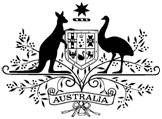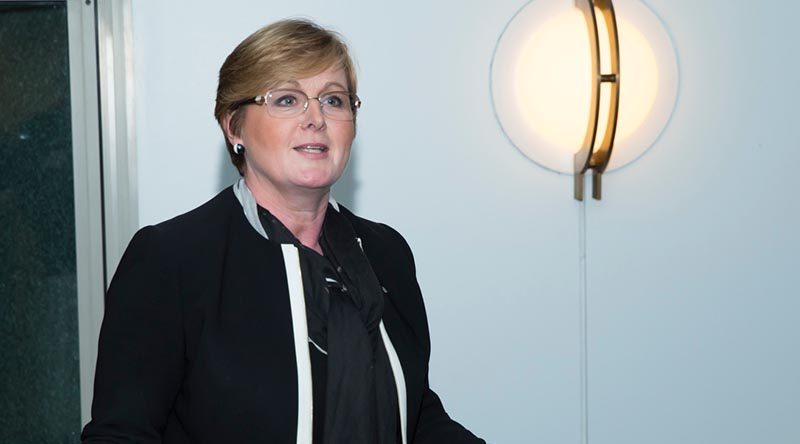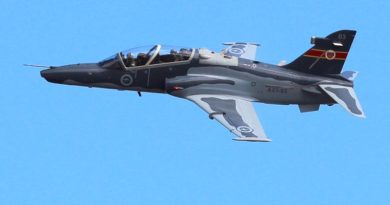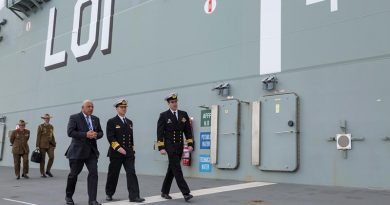Transcript – Aust MinDef address to Shangri-La Dialogue 2019
Share the post "Transcript – Aust MinDef address to Shangri-La Dialogue 2019"


| Transcript |
|
SENATOR THE HON LINDA REYNOLDS CSC Shangri-La Dialogue 2019 Remarks |
FILE PHOTO (2015): Senator Linda Reynolds. Photo by David McClenaghan.
Ladies and gentlemen, good morning to you all and thank you, John, for your very warm welcome here today.
It’s wonderful to be here for my first Shangri-La Dialogue as Australia’s Defence Minister and also to be joined in this panel session by General Lich and also Secretary Lorenzana. And I thank you both for your very insightful insights this morning but I’d also thank you for your very personal welcome to me as Defence Minister.
And thank you, also to Singapore for hosting this Dialogue and Minister Ng for your hospitality, your wisdom and your sense of humour.
Delegates, occupying what can be very harsh, isolating land, Australians have always implicitly understood the value of friendship, of loyalty and also of cooperation.
Australia is a nation where the ethos of mateship is deeply ingrained. Mateship is about building and maintaining our personal connections and it’s also about trust. Events like the Shangri-La Dialogue provide an invaluable opportunity for us all to re-establish and renew existing connections and to develop new ones.
Over the past few days in Singapore, I’ve caught up with colleagues who I’ve met through different stages of my own professional career. People like Dame Meg Taylor MBE, who I first met at a polling booth in Goroka in the Papua New Guinea Highlands when I was an election observer; Admiral Philip Davidson, who I engaged with during my time as Chair of the Australian Parliament’s Defence Sub-Committee; Menna Rawlings, who I developed a very close relationship with when she was the UK High Commissioner to Australia; and alsoSenior Colonel Zhao who is here today, who I studied with for 12 months on a senior strategic studies course at the Australian Defence Staff College in Canberra with many other senior military officers from right round the world.
But mateship isn’t just about connections and about trust, it’s also about giving others a fair go. Australians, we like to speak frankly. We value honesty and we also embrace rules. Because rules — established rules — mean fairness, they deliver stability and they also create trust. As Prime Minister Lee pointed out to us, it is trust that is critical to ensuring continued peace and stability in our region.
That is what Australia offers to our neighbours and to the world. We are a country of 25 million people. We know who we are, you know who we are and Australians act on the basis of who we are.
Today that is an asset in a region, which is at the centre of a profound transformation of global economic and political influence. The Indo-Pacific is becoming more prosperous but it is also becoming more complex and contested. We are currently seeing the return of old challenges and the emergence of new ones: major-power rivalries; trade, investment and infrastructure being used as tools to build strategic influence; North Korea’s dangerous nuclear missile activities; challenges to international law and norms including in the South China Sea; and growing security threats such as terrorism, cyber-warfare and climate change. And all of these will shape our region in the years ahead and some of them have, to date, already eroded the hard-won rules and norms that have, for so long, underpinned the region’s stability and also the region’s prosperity. This should concern each and every one of us here.
Now is a time when we must be clear about the kind of Indo-Pacific we want and collectively and wholeheartedly work towards it.
Now we won’t always agree. On some issues we will diverge — that is expected and natural.
As Acting Secretary Shanahan said in his speech yesterday, competition does not mean conflict, and competition isn’t something that should be feared – so long as everybody plays by internationally-established rules. But we must also continue to find these common principles that unite us. That common sense of purpose. I believe the emergence of Indo-Pacific visions and concepts with similar principles should give us all a cause for optimism.
Australia’s Indo–Pacific vision reflects our national character and also our very unique sensibilities. We want a region that is open and inclusive; respectful of sovereignty; where disputes are resolved peacefully; and without force or coercion. We want a region where open markets facilitate the free flow of trade, of capital and of ideas and on where economic and security ties are being continually strengthened. We want an Indo-Pacific that has ASEAN at its heart and is underpinned by the rule of law with the rights of all states being protected.
Australia’s vision is also one that includes a fully-engaged United States. For 70 years, US leadership in the region has supported economic growth and promoted the norms and also the principles that have created greater security and prosperity. It is in everyone’s interest that this type of engagement continues. And, as it does, we also want to see China helping to shape peace and stability in the region with other powers like Japan, India and Indonesia playing important roles.
At the heart of Australia’s Indo-Pacific vision is the confidence that both greater prosperity and security are this region’s future. To realise it, all countries will need to work together to take more deliberate, collective action. We must use a common blueprint. It’s not about being bound by the past. It is about building on the past and reflecting on the realities of today.
Sustaining and strengthening shared rules, norms and institutions is vital. This is how we can prevent conflict and address security threats and economic challenges that are too big — too complex — for any one country to deal with alone. Of course, building takes time — if it is done well, that is. It requires investment, it requires commitment, it demands ongoing maintenance and it is worth the effort.
Australia understands that. We have displayed our commitment to this region over many decades and proven ourselves an enduring and a reliable partner. Australia has always been there to support our friends and our neighbours. Our mates.
There was our leadership of the multi-national mission to restore order in Solomon Islands; our partnering with ASEAN members — Indonesia, Thailand and Laos among them — to support their responses to tragic natural disasters; cooperating with Malaysia on the search efforts for MH370; and working with the Philippines to help defeat terrorists in its southern provinces. Of course, Australia also understands that hard-won gains are sadly easily undone. No country can bank on its past — or assume its own future.
Right now, we are in the midst of an effort to take our relationship with Pacific neighbours to a new level. Australia wants to do our bit to ensure the Pacific region is resilient and it is stable. Our efforts now go well beyond what Australia has done in the past. We have a package of initiatives that are far-reaching in scope and also in ambition – security, economic, diplomatic, development and people-to-people initiatives that build on long and historic relationships and friendships.
There are of course the traditional military-to-military activities. Earlier this year, Australian sailors and soldiers visited many parts of the region. They travelled to Papua New Guinea, Solomon Islands, Vanuatu, Tonga and Tuvalu to train with other forces and also, most importantly, get to know the communities.
We are also focused on helping to build infrastructure and doing it in partnership based on what is needed, what is wanted and also what is valued. Together with our neighbours, we are delivering high-quality infrastructure that is built to last. Our planned major projects in Fiji, PNG and also Vanuatu will boost the capability of the Pacific and also the interoperability of our forces. And this sits alongside our efforts to build maritime capability.
To date Australia has gifted two brand-new Guardian-class Patrol Boats — one to PNG and the other to Tuvalu. A further 19 will be delivered to 12 Pacific Island countries and Timor-Leste in the coming years. Delegates, that gives you a sense of what is happening in the Pacific. There is — and there will be — more to come. But what is important to remember is that Australia, is in it for the long-haul. After all, this region is our immediate neighbourhood. This is how we approach our defence relationships with South East Asia too.
Australia is a longstanding partner. We listen to South East Asian perspectives and we work together on challenges. Australia remains one of the few countries to conduct strategic defence dialogues with all countries across South East Asia and our defence engagement budget is AUD$22 million.
Training and education also remain a priority for us. Annually, we offer close to 1,000 positions for military officers from South East Asia to come to Australia to build closer bonds and mutual understanding through training and study. We also conduct almost 50 bi-lateral, mini-lateral and multi-lateral exercises each year. These grow in sophistication and complexity as security challenges are evolving. We’re also stepping up our maritime cooperation in areas such as maritime domain awareness and combatting illegal, unregulated and unreported fishing. And Australia is helping to boost regional peacekeeping capabilities in South East Asia. And in practice, this means: specialised English-language training for a UN setting; co-hosting a multi-national desktop exercise — PIRAP JABIRU — with Thailand; and providing strategic airlift for Vietnam’s peacekeeping deployments to South Sudan. And on that last point, let me congratulate General Lich on his country’s historic moment.
So Australia works from a solid base. We want to do more and we will do more as the example of Exercise Indo-Pacific Endeavour demonstrates. This annual series is Australia’s flagship maritime activity, now in its third year – it is another tangible display of our desire to deepen our engagement with regional security forces. It brings together our partners so we can undertake activities like disaster assistance planning, naval manoeuvres and security training serials to build joint capabilities and also to create invaluable people-to-people links.
In 2017, the first Indo-Pacific Endeavour focused on South East Asia. Last year it was the Pacific. And this year it was the Indian Ocean region, visiting Sri Lanka and then India for Australia’s bi-annual naval activity, AUSINDEX. Other ports visited and activities took place in Indonesia, in Malaysia, Thailand, Vietnam and right here in Singapore. Of course, Singapore welcomed Australia while also hosting IMDEX Asia 2019, which was an impressive feat and I again offer Australia’s sincere thanks for Singapore’s — as always — gracious hospitality.
I should also mention that Indo-Pacific Endeavour and AUSINDEX are part of a broader engagement across the Indian Ocean. Australia has one of the Indian Ocean’s longest coastlines. We also have extensive Exclusive Economic Zones and the largest Search and Rescue Zone in the Indian Ocean – nearly 53 million square kilometres.
We understand the Indian Ocean is vital, as the whole Indo-Pacific region is vital to Australia’s security. We want to build a web of regional cooperation and are pursuing new and innovative ways of achieving this. For example, naval vessels from Australia, France, Japan and the United States recently completed the first iteration of ‘La Perouse’ — the French-led maritime exercise in the Indian Ocean. And as Australia continues to support complex search and rescue missions, a great example of that was the search and rescue for MH370.
There was also that case last September when HMAS Ballarat and a P-8 aircraft worked closely with Indian and French assets to rescue an Indian sailor who was lost 1,800 nautical miles off Australia’s western coast. We also continue to participate in the Indian Ocean Naval Symposium because we believe, and we believe strongly, in supporting the Indian Ocean’s maritime architecture.
Delegates, Australia is clearly committed to being an enduring partner across the region and we underscore this by participating in forums and in dialogues such as this one and many others: the ASEAN Defence Ministers’ Meeting Plus; the ASEAN Regional Forum; the East Asia Summit; and the various sub-regional groupings. From Australia’s viewpoint, these all remain vital opportunities to plan and explore complexities, to strengthen our regional architecture.
Delegates, we do not forget ourselves either. Australia is very conscious that we cannot simply be an enduring partner. We must also be a credible one. Alongside our enhanced efforts in other domains, over the next decade, the Australian Government is investing billions of dollars into expanding our defence capabilities. We will have a more potent and agile Australian Defence Force, our maritime power will be regenerated and we will have an expanded defence industrial and also export capability. We want to be as valuable to our partners as they are to us. That is important.
Conflict can happen at any time. But strong relationships, agreed rules and norms, and effective institutions can help to lessen and even prevent it. The Indo-Pacific is a complex region – we all know that. Its challenges are great. We know that mateship, like trust, is earned over time. But if we work together, we can build this trust and we can deliver on a vision of a region that is secure and is stable. One underpinned by rules and norms that benefit us all. A region, in short, that continues to prosper.
Ladies and gentlemen, thank you very much for your attention and I now look forward to our discussion. Thank you.
.
.
.
.
.
.

.
.
Share the post "Transcript – Aust MinDef address to Shangri-La Dialogue 2019"





